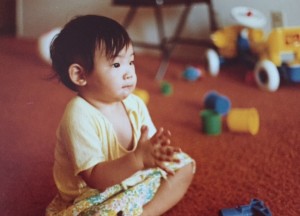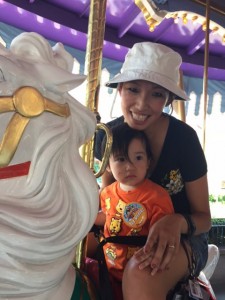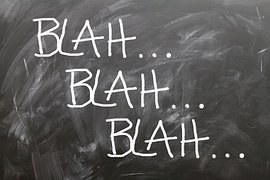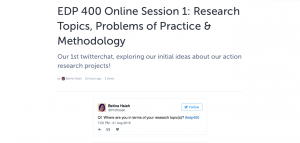I am one for doing the assignments that I ask my students to do, and I’ll be showing a digital version of my literacy autobiography in class on Wednesday, but I figured it was time to update that version a bit and what better way, but a blog post, so here goes….
I learned to read before I got to school. If my own daughter gives any hints into my past, I was always interested in literacy, books, and “being like the bigger kids.” Being the baby in my family by quite a few years, there were lots of older people around me to model literate practices and I studied them to understand the world. According to my family, I was reading my 3 (the same age as my son) and although I don’t remember bedtime stories or family literacy practices, there were always books around.
I loved writing as a child. Whether it was learning the abbreviations for the various take out dishes at my aunt’s restaurant to send orders to the kitchen or writing my own illustrated stories, teenie-bopper fiction, or, later, angst filled poetry, I knew I loved to write. I would enter the yearly creative writing contests in school as well as participating in reading contests at the local library. Such a love I had for literacy in my early years. I couldn’t get enough.
My love affair with literacy was detoured by achievement and the demands of secondary and post-secondary success. While I continued to thrive in school, thanks to my strong literacy background, I lost the time to read and write for pleasure. In college, I focused on literature and social sciences in order to make the reading I had to do “count,” aligning the information that I gained with the passions that I had for the stories of others and social justice.
I never learned to read “as a social scientist” or “educational researcher,” but I began to seek readings that would promote more questions than answers and I find that today, I often have to “write myself to clarity” in my thoughts.
Today, I read for my work, to my children, and as topics catch my attention on social media. I am still drawn to work that fulfills my desire to hear the voices and stories of others, and that give voice to those that often do not have voice. My love for literacy has led to a research strand focused on the development of literacy among secondary teachers and has led to lots of reading on the topic.
I suppose that, much like a love affair that begins with passionate infatuation and exploration, but deepens to involve all parts of oneself, sometimes ending in a quiet comfortable ever-present companionship, my literate life has also evolved. There’s a deep peace in accepting that evolution and the roles that literacy continues to play and will play as I grow and change.











